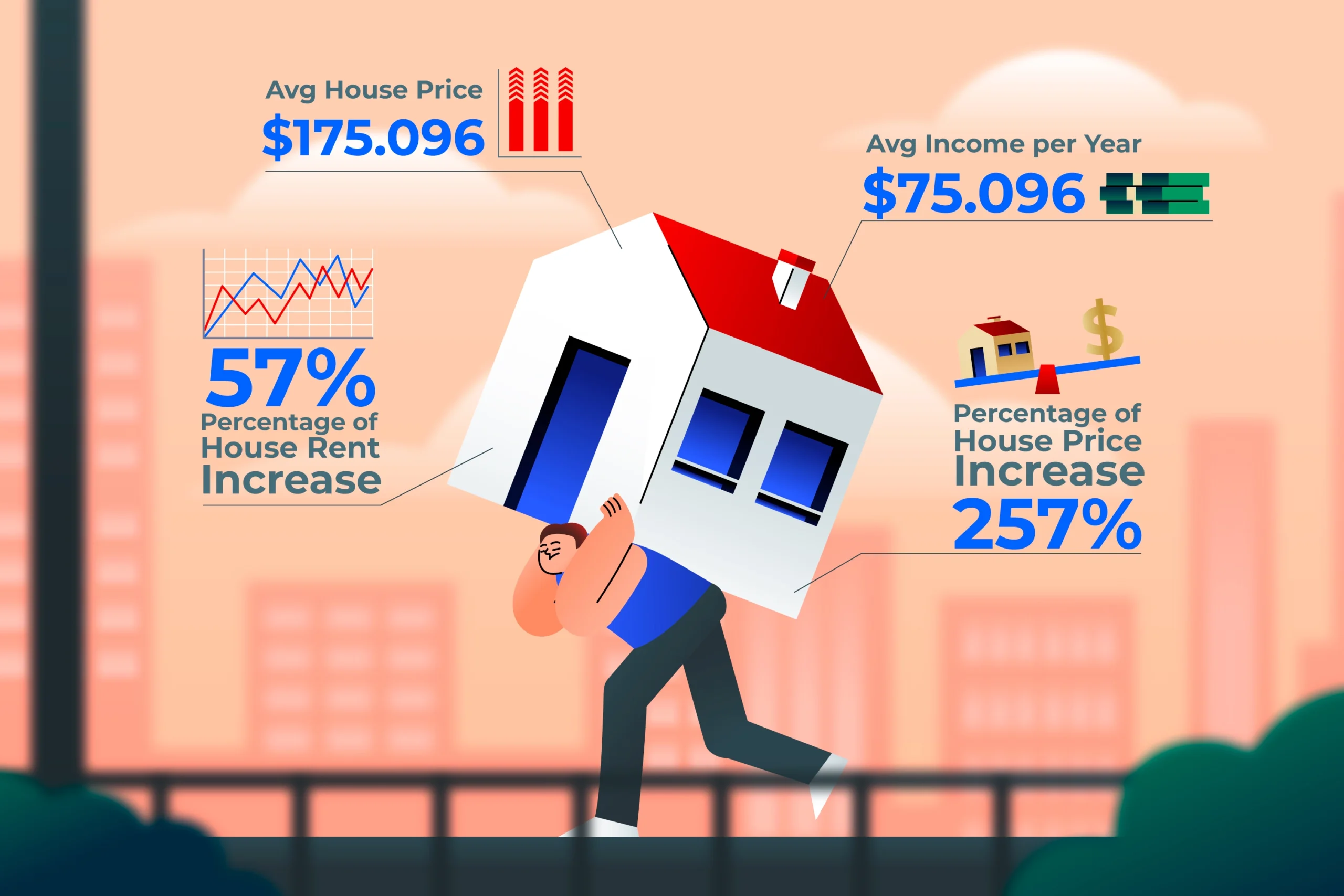Welcome to the exciting world of real estate investing! If you’ve ever dreamed of making money while you sleep, you’re in the right place. As the great Warren Buffett said, “The best investment you can make is in yourself.” Let’s dive in!
What is Passive Income in Real Estate?
Passive income means your money works as hard as you do — maybe even harder. In real estate, this is money earned from property ownership (like rent payments) with minimal day-to-day involvement. Think of it as your financial autopilot.
“It’s not how much money you make, but how much money you keep, how hard it works for you, and how many generations you keep it for.”
Why Real Estate for Passive Income?
- Stability and Growth: Real estate isn’t just about those Hollywood mansion flips — most investors focus on steady, reliable gains. Recent surveys show that 87% of real estate executives are optimistic about 2025, even as markets change. The Asia-Pacific real estate market alone is valued at over $2.46 trillion.
- Predictable Cash Flow: Rent payments come in whether you’re relaxing on a beach or binge-watching DIY home shows.
- Diversification: Real estate is a vital way to spread out your investments and lower risk, even if you’re a fan of thrill rides — just don’t treat your finances like a rollercoaster.
Ways to Invest in Real Estate for Passive Income
1. Rental Properties
This is the classic: buy a property, find tenants, and collect rent. Pro tip: invest in up-and-coming areas to ride the growth wave. Use property managers to handle the headaches so you can truly enjoy the “passive” part.
“Don’t wait to buy real estate. Buy real estate and wait.” —Will Rogers
2. Real Estate Investment Trusts (REITs)
REITs work like mutual funds for real estate, offering shares in companies that own and manage real estate. Many REITs must pay out at least 90% of profits to investors as dividends. You don’t need a mansion-sized budget to get started — some investments can be as low as $5.
3. Short-Term (Vacation) Rentals
Ever wanted to own a beach house or cozy mountain cabin? List it on Airbnb or equivalent, then let vacationers pay your mortgage. These rentals command higher nightly prices than traditional long-term rentals but do require a little more juggling (and maybe some snazzy throw pillows).
4. Crowdfunding and Peer-to-Peer Lending
With real estate crowdfunding, you can pool funds with other investors for a slice of big deals. Peer-to-peer lending lets you be the bank, backing buyers or projects in exchange for steady interest payments.
5. Commercial Real Estate
Invest in office space, retail, or industrial properties and rent to businesses. Commercial tenants often sign long leases, and many handle their own maintenance — so you can sit back and enjoy the returns.
Case Study: How Jane Turned a Single Rental Property into a Thriving Passive Income Stream
Jane had always dreamed of financial freedom but had minimal investing experience. She bought a modest 2-bedroom apartment in an up-and-coming neighborhood for $200,000. Using the tips we discussed, she hired a property manager to handle tenants and maintenance, avoiding the usual landlord headaches.
Within the first year, Jane rented the unit for $1,800 per month. After expenses like mortgage, taxes, insurance, and property management fees, she netted about $300 monthly — a steady passive income source that required little day-to-day effort.
By year five, the area’s property values had appreciated by 20%, increasing her home equity significantly. Jane reinvested the profits into another rental property, gradually building a portfolio that now generates over $4,000 monthly in passive income — all while she maintains her full-time job.
Jane’s story shows how starting small, being patient, and using smart management strategies can make real estate passive income accessible and rewarding.
Real Estate Passive Income: Key Statistics for 2025
| Investment Type | Avg. Initial Investment | Typical Monthly Income Range | Potential Annual ROI* | Risk Level |
|---|---|---|---|---|
| Rental Properties | $150,000 – $250,000 | $1,000 – $2,500 | 6% – 12% | Moderate |
| Real Estate Investment Trusts (REITs) | $500 – $5,000 | $20 – $100+ (dividends) | 4% – 8% | Low |
| Vacation Rentals | $200,000 – $400,000 | $1,500 – $3,000+ | 8% – 15% | Moderate to High |
| Commercial Real Estate | $500,000+ | $3,000 – $10,000+ | 7% – 12% | Moderate to High |
| Real Estate Crowdfunding / P2P Lending | $500 – $10,000 | Varies by deal | 5% – 12% | Moderate to High |
*ROI = Return on Investment, varies by location and management quality.
Tips for Aspiring Real Estate Investors
- Start Small: You don’t need Rockefeller money. Even a small rental or a few REIT shares is a solid start.
- Do Your Homework: Never invest somewhere you wouldn’t want to live… or at least visit for a cup of coffee.
- Embrace Technology: Use property management apps, dynamic pricing tools, and automated accounting to make your life easier.
- Think Long-Term: The real estate market isn’t a slot machine. Sustainable gains come with time, patience, and maybe the occasional leaky pipe.
“Investing should be more like watching paint dry or watching grass grow. If you want excitement, take $800 and go to Las Vegas.” —Paul Samuelson
- Stay Motivated: Every step forward is a step toward financial freedom. As they say,
“The speed of your success is limited only by your dedication and what you’re willing to sacrifice.” —Nathan W. Morris
Fun Fact Break
- The global real estate market still trends upward for patient investors — despite market hiccups and global uncertainties, positive returns are projected for 2025.
- Rental property remains the most reliable form of passive income, with consistent demand across urban centers and vacation hotspots.
Typical Mistakes to Avoid
- Ignoring the Numbers: Always factor in taxes, maintenance, and vacancy rates. If the math doesn’t work, neither will your investment.
- Being a Solo Act: Leverage property managers, professionals, and sometimes, trustworthy family members. (Emphasis on ‘trustworthy!’)
- Falling for Get-Rich-Quick Schemes: Sustainable wealth takes time. If someone guarantees you’ll get rich overnight, run — preferably faster than your future tenants might when you raise the rent.
Conclusion: Your Passive Income Roadmap
Real estate investing can seem like a big leap, but even the tallest apartment building started with one brick (and probably a few zoning meetings). By combining practical strategies with patience and a sprinkle of humor, you can set your money on autopilot and start building wealth for years to come. Remember,
“An investment in knowledge pays the best interest.” —Benjamin Franklin
So keep learning, stay consistent, and soon enough, you’ll wake up to that sweet sound: not an alarm, but the sound of rent hitting your account.
Ready to get started? Your future self will thank you.


